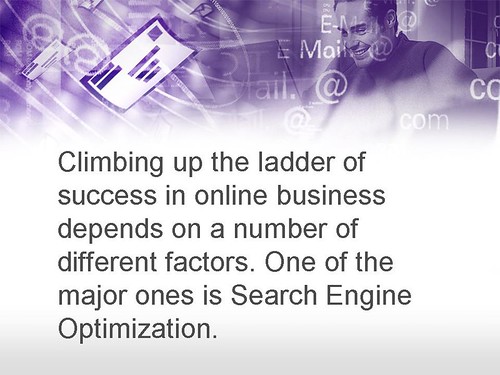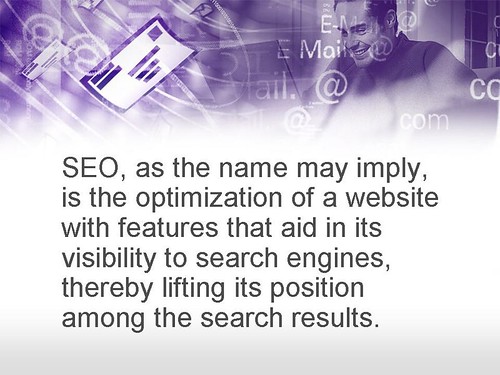Surface Encounters
Josh Pastner of Memphis Tigers gets new 5-year deal
![]() Memphis coach Josh Pastner receive a new five-year contract Tuesday.
Memphis coach Josh Pastner receive a new five-year contract Tuesday.
Surface Encounters
URGENT: Plutonium detected in soil at Fukushima nuke plant: TEPCO <b>...</b>
URGENT: Plutonium detected in soil at Fukushima nuke plant: TEPCO. TOKYO, March 28, Kyodo. Plutonium has been detected in soil at five locations at the crippled Fukushima Daiichi nuclear power plant, Tokyo Electric Power Co. said Monday ...
Surface Encounters
autosport.com - NASCAR <b>News</b>: Raikkonen to compete in NASCAR
Former Formula 1 world champion Kimi Raikkonen will make a surprising move to NASCAR this year, the Finn joining the series with a new team.
Surface Encounters
Editor’s Note: Jim Dalrymple has been writing about Apple for more than 15 years. You can follow him on Twitter @jdalrymple and on his Web site at The Loop.
Apple CEO Steve Jobs on Wednesday introduced the iPad 2 at a special event in San Francisco, taking even more momentum away from its competitors.
I’ve had a lot of people in the last 24 hours tell me that the iPad 2 isn’t as revolutionary as the first generation device. Yes, that’s true. But not every device a company releases has to be or can be revolutionary.
Apple has released three revolutionary products in the last decade alone: iPod, iPhone and iPad. I really can’t think of any products from Apple’s competitors that fit in the revolutionary category in that same time period.
People also said that Apple wasn’t very forthcoming with the specs of the iPad 2. Again, that’s true, but there’s a good reason for that—nobody cares.
Well, some people care. Those of us who are geeks care about specs. However, have you ever noticed that when you sit with your non-geek friends and start listing off specs their eyes glaze over and they rest their chin in their hand.
That’s because they couldn’t care less.
The iPad 2 is no slouch either. It lost one-third of the thickness of the previous generation, and therefore it is one-third less than the size of the iPad competitors too. It also has new technologies like a gyro built-in that will launch another round of cool apps.
Yesterday’s iPad 2 announcement wasn’t about the geeks—it was about all the other people who will buy an iPad. What those people want to know is “what can I do with it?”
If it fits into their lifestyle, most people are good with that. Apple showed many ways how the iPad 2 can fit into your lifestyle.
From the very beginning, Apple was very smart with how it marketed the iPad. The first thing it did was get the device into businesses and promote the fact that it could be used to get work done. And it was quite successful with that.
In an analyst call in October 2010, Apple CFO Peter Oppenheimer said the iPad was already being used in 65 percent of Fortune 100 companies. That was four months ago and the iPad has grown since then, so we can only imagine where that number is now.
This strategy allowed Apple to do two things. If it came out with the iPad and pushed the gaming capabilities of the device, the business world would have looked at it as a toy. That would have certainly meant slower adoption. It also allowed them to work on some consumer software, two of which we saw yesterday.
In addition to the iPad 2, Jobs also unveiled iMovie and GarageBand for the iPad. This is what people want to know about—what can I do with the iPad that’s exciting and new.
Obviously, creating movies and being able to edit and share them with friends and family is a very popular thing to do these days. iMovie makes that easy.
Creating music, whether a novice or pro is also a cool thing to do. GarageBand is a great app to get that done and you can move your projects to your Mac and continue working on them.
It’s not just about the hardware. Apple delivers the whole experience that nobody else can. Jobs said yesterday that there are 65,000 apps on its App Store specifically designed for the iPad. That’s a lot of things you can do.
If you think Apple’s competitors are jumping for joy because the iPad 2 isn’t revolutionary, I believe you are wrong. I think they’re scared. Yesterday, they figured out Apple’s strategy too, but a little too late.
Apple advertises its products as magical. They’re at the intersection of “technology and the liberal arts,” Steve Jobs said today. Something that moves your heart, not just your lust for technology. Will consumers still buy that in 2011?
The big picture question of the day is whether Apple has done it again. With the original iPad, Apple crushed its rivals, taking more than 90 percent of the tablet market in 2010 and selling more than 15 million units. Jobs predicted today that 2011 will be the year of the iPad 2. Based on what I have seen today, I think he’s mostly, but not entirely, right.
Competitors will discover that Apple has a lot of inherent financial advantages, including being a low-cost leader. That may not sound intuitive, but I believe it has to be true. It is selling so much volume of its products that it can get discounts on parts and manufacturing services that no one else can get.
When it sells its products in stores, it also doesn’t have to give away 20 percent of the margin to a retailer. That is a huge financial advantage. Carriers are also willing to subsidize the costs of Apple products in a way that they won’t with other tablet vendors. All of these things may explain why the Motorola Xoom, a very cool product, is selling for $800 while Apple has priced its new devices at $499 to $829, (and dropped the price of the old iPad to $399). Apple has also left very little room for rivals here, since it has signed up both AT&T and Verizon. Perhaps there is room for rivals to sell $199 machines, but users probably aren’t going to like them.
Those are reasons why any cool Apple mobile product could beat other rivals. But Apple has also done some smart things with the iPad 2. It has created another rev of its microprocessor, the A5, which has two cores, or computing brains. And it has nine times faster graphics than its old A4 chip. Since Apple designs this chip itself, it doesn’t have to give away much margin to a chip design firm. It only has to give a small margin to a chip manufacturer such as Samsung to make the chips.
Apple has also custom-designed the A5 to run Apple applications on a device with a 10-hour battery life. Apple should have an edge there, as it won’t sell the A5 to rivals. But if this is an advantage, it isn’t likely to last long, as Nvidia is being very aggressive with a new quad-core chip that it could sell to any Android rivals.
The design of the iPad 2 is where Apple has more advantages. The iPad 2 will have faster web-browsing with a new version of Safari. It has two cameras that will inspire a lot of video and photo-related apps. The availability of the Mac applications — iMovie, Garage Band, and Photo Booth — on the iPad 2 will make a lot of users happy. More interesting features will come with new releases of the iOS, or Apple’s operating system in the fairly near future.
There are some users who won’t like the restrictions of Apple’s ecosystem. If they want universal serial bus (USB) and SD card ports, they are out of luck. Apple didn’t change the resolution of its screen either, leaving it at 1024 x 768. Competitors could add these options and put emphasis on them as selling points. (Critics are disappointed that Apple did not improve the display, but that’s a big cost issue others have too).
Apple has also made great improvements in the feel of the product. It’s 33 percent thinner, 2 ounces lighter, and it has a wonderful new screen cover that doubles as a stand for the device. (It wakes up the device when you peel it back and it has micro-fibers that clean the screen when the cover is on).
Now here is why Jobs is not entirely right. Apple has come up with a stunning machine at prices that the competitors will have a hard time beating. But it is almost inevitable that Android-based tablets will gain market share on Apple.
So far, I don’t see the Android machine that will beat the iPad 2. But the potential is there, given ingredients such as Android 3.0, Nvidia Tegra 2 chips and other fast microprocessors, and 4G LTE. The latter is the main weakness in Apple’s armor.
LTE is fast, with a minimum speed on Verizon at around 12 megabits a second and actual speeds running much higher than that now. Getting access to 4G LTE is as big a benefit as having access to lots of cool apps, from my point of view. Right now, the timing of the still-young LTE technology means that Apple cannot yet put it into its mass-produced, lowest-cost tablet computers.
If LTE costs come down sometime soon, then Apple can launch a new version of the iPad to incorporate the technology. But it’s not a simple upgrade, as it means that the hardware of the machine — including the radio chip — has to change. And for now, LTE chips are larger than their 3G equivalents, so the heat dissipation and product size are affected. In other words, LTE can force Apple to redesign the iPad.
Apple can do that. But Android tablet makers might be able to move faster than Apple directly into the 4G LTE tablet market. If they do that, then they will have found a scenario where they could steal a march on Apple. Apple is not likely to let that gap last for a long time, but it might be enough for Apple to lose some share this year.
Apple’s leadership position in this market will be hard to beat, but the collective weight and reach of Android rivals could erode it. And here’s a sobering thought: If Apple eventually winds up with only 30 percent of the tablet market, it could still be No. 1, and its place as the largest technology company in the world will not be at risk.
Check out Apple’s overview video on the iPad 2 and Jobs’ comments on technology and the liberal arts below.
Next Story: Loot Drop banks on talented game designers as it takes on social gaming’s giants (exclusive) Previous Story: Electric car startups to square off against Big Auto competition
Surface Encounters
Surface Encounters
The major legislative item on the agenda in the Senate this week will be The Small Business Reauthorization Act (S. 493). Republicans plan to use this bill as a platform to promote critical pieces of legislation through the process of non-germane amendments to the bill. Here are some vital amendments that will be debated and voted on throughout the week:
- Senator Mitch McConnell is offering an amendment (S. AMDT 183) to prohibit the EPA from promulgating any regulations on greenhouse gas emissions. There is perhaps no force that is more destructive to our prosperity, consumer freedom of choice, and job creation than onerous cap and trade schemes. There are many red state Democrats who are up for reelection in 2012 and will be hard pressed to go on record as supporting policies that are an imprecation to the interests of their states. Make sure to call Senators Claire McCaskill, Joe Manchin, Ben Nelson, Bill Nelson, and Jon Tester in particular.
- Senator David Vitter is offering an amendment (S.AMDT. 178) forcing the federal government to sell off unused and underused property. This is a serious issue. The federal government owns over half of the land in some western states and has been using it to stifle energy development. Selling unused federal lands would also serve as a prudent means of generating revenue without raising taxes.
- Senator Rand Paul is using the SBA bill as a platform to offer his signature budget bill (S.AMDT 199) which would slash $200 billion in spending for fiscal 2011. Paul’s plan slashes funding by 50% to the Departments of Energy, Education, and HUD. This amendment represents real limited government and budget austerity and will separate the men among the boys in the ranks of the Republican Conference.
- Senator Kay Bailey Hutchison is forcing a vote (S. AMDT 197) to delay the implementation of ObamaCare until a final resolution is reached in pending lawsuits. Unlike other bills that are designed to merely ameliorate ObamaCare, this amendment would completely halt it during the ensuing legal battles.
- Senator Tom Coburn has filed an amendment (S.AMDT.184) to force federal agencies to compile comprehensive lists of all of their programs
Make sure that all of your Republican senators are on record supporting these amendments, especially Rand Paul’s budget proposal. Also, let’s see which faux moderate Democrats will commit to supporting anyone of these commonsense initiatives. Needless to say, I didn’t waste time calling my senators; Barbara Mikulski and Ben Cardin!
The major legislative item on the agenda in the Senate this week will be The Small Business Reauthorization Act (S. 493). Republicans plan to use this bill as a platform to promote critical pieces of legislation through the process of non-germane amendments to the bill. Here are some vital amendments that will be debated and voted on throughout the week:
- Senator Mitch McConnell is offering an amendment (S. AMDT 183) to prohibit the EPA from promulgating any regulations on greenhouse gas emissions. There is perhaps no force that is more destructive to our prosperity, consumer freedom of choice, and job creation than onerous cap and trade schemes. There are many red state Democrats who are up for reelection in 2012 and will be hard pressed to go on record as supporting policies that are an imprecation to the interests of their states. Make sure to call Senators Claire McCaskill, Joe Manchin, Ben Nelson, Bill Nelson, and Jon Tester in particular.
- Senator David Vitter is offering an amendment (S.AMDT. 178) forcing the federal government to sell off unused and underused property. This is a serious issue. The federal government owns over half of the land in some western states and has been using it to stifle energy development. Selling unused federal lands would also serve as a prudent means of generating revenue without raising taxes.
- Senator Rand Paul is using the SBA bill as a platform to offer his signature budget bill (S.AMDT 199) which would slash $200 billion in spending for fiscal 2011. Paul’s plan slashes funding by 50% to the Departments of Energy, Education, and HUD. This amendment represents real limited government and budget austerity and will separate the men among the boys in the ranks of the Republican Conference.
- Senator Kay Bailey Hutchison is forcing a vote (S. AMDT 197) to delay the implementation of ObamaCare until a final resolution is reached in pending lawsuits. Unlike other bills that are designed to merely ameliorate ObamaCare, this amendment would completely halt it during the ensuing legal battles.
- Senator Tom Coburn has filed an amendment (S.AMDT.184) to force federal agencies to compile comprehensive lists of all of their programs
Make sure that all of your Republican senators are on record supporting these amendments, especially Rand Paul’s budget proposal. Also, let’s see which faux moderate Democrats will commit to supporting anyone of these commonsense initiatives. Needless to say, I didn’t waste time calling my senators; Barbara Mikulski and Ben Cardin!
Surface Encounters
New York Yankee <b>News</b>: Granderson, Chavez, Joe West and Barry Bonds <b>...</b>
All the Yankee news you need. ... News links: Feliciano, Romulo, Chavez and the Canseco twins. Mar 2011 by Travis G - 51 comments. Around SB Nation. Game Thread #-1: Brewers @ Padres. Mar 2011 from Brew Crew Ball - 4 comments ...
Surface Encounters
Surface Encounters
Surface Encounters
This Week's Health Industry <b>News</b> - NYTimes.com
A look at what's coming up in the drug and health fields.
Surface Encounters

















